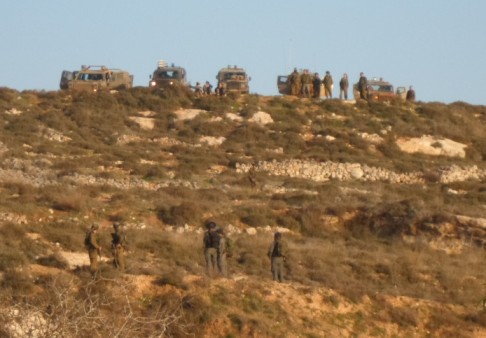Year: 2012
-
Attacks on Urif continue, soldiers invade the village
27 December 2012 | International Solidarity Movement, Urif, Occupied Palestine Following three days of incessant attacks from Israeli soldiers and settlers on the village of Urif, south of Nablus, around seventy soldiers on ten military jeeps soldiers invaded the village at 9:30 this morning. They started firing tear gas on children aged three to six…
-
Support the communities of Fasay’il al Wusta
28 December 2012 | Jordan Valley Solidarity, Fasay’il al Wusta, Occupied Palestine Located in-between the settlements of Petza’el and Tomer in area C, the community in Fasay’il al Wusta is prevented from accessing running water or electricity, they are not allowed to tarmac the stony track that is the only road access to their homes, and…
-
Urif under attack
26 December 2012 | International Solidarity Movement, Urif, Occupied Palestine Over the past three days, the village of Urif, south of Nablus, has been under constant attack from Israeli settlers and soldiers. Soldiers invaded the village twice and numerous people sustained injuries from rubber-coated steel bullets and tear gas canisters. People in Urif said that…


